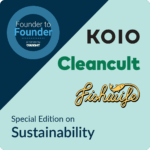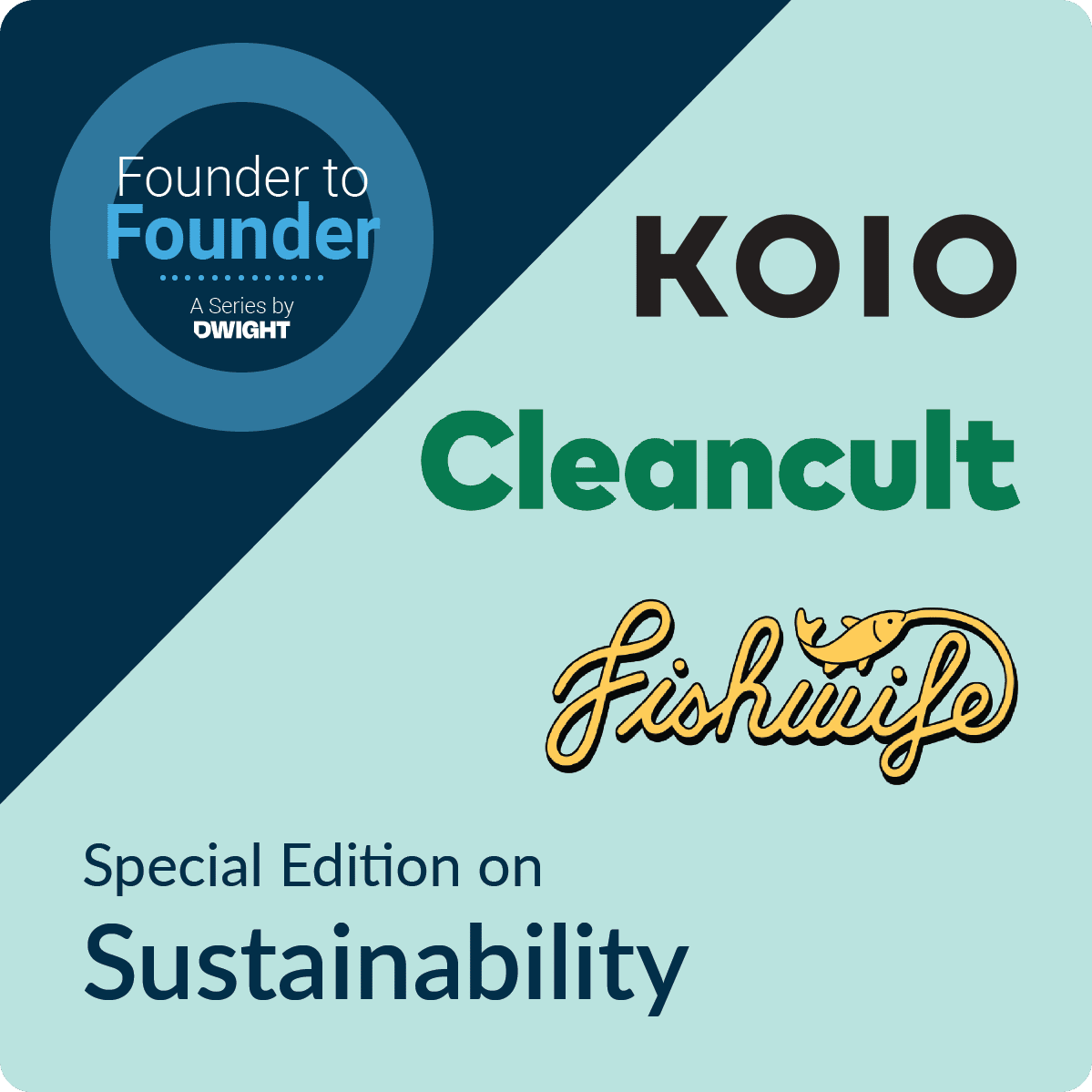
A Conversation with the Founders of Cleancult, Fishwife, and Koio
The push toward environmental sustainability has left no industry untouched, with CPG being a great example. Brands are tapping into resale, reworking supply chains, introducing reusable containers, and much more. When done correctly, sustainability initiatives can positively differentiate your brand in the market and help attract discerning customers. However, building an eco-friendly business from scratch requires tradeoffs, research, and exceptional innovation.
The CPG founders in this article are all great examples of thought leaders in our community who thought outside-the-box, and in doing so, set new standards of sustainability in their categories. In this special edition of Founder to Founder, we hear about the restorative capabilities of regenerative agriculture, learn what sets apart a ‘Green’ brand from a ‘Dark Green’ brand, and how to evaluate the environmental efficacy of a fishery. Read on to hear more from Ryan Lupberger of Cleancult, Becca Millstein of Fishwife, and Chris Wichert of Koio.
How does sustainability play a role in your business?

Ryan Lupberger, Cleancult
Our core thesis is sustainability. For us, it’s integrated into every decision we make. We wanted to deliver a truly sustainable system from start to finish, without changing behavior.
Sustainability at Cleancult means…
- Carbon Neutrality: We are carbon neutral across our company. We partnered with carbonfund.com to ensure we offset any impacts we have on the environment, so we’re completely neutral including shipping and logistics.
- Sustainable Packaging: We have the most sustainable packaging in the household cleaning space. Our system reduces a substantial amount of carbon emissions, carcinogens, plastic waste, and petroleum-based ingredients that go into making plastic packaging.
- Efficient Shipping: We ship empty versus fill. Imagine an empty plastic bottle that goes to a filler. You can only have 600 of them on a palette because they’re so large in size. Our cardboard milk-carton-style packaging ships flat. We use 1 out of every 26 trucks compared to plastic bottles.
- Bio-based Ingredients: We go through all the different certifications to make sure everything is clean. We try to be regenerative, meaning we consider what raw ingredients have the most impact and the least impact, and choose the ingredient with the lowest carbon for each input.
- Reusability: You can imagine all of the plastic used for cleaning bottles. We use roughly 2%-3% of that, so it’s next to nothing.

Becca Millstein, Fishwife
We built our products and our supply chain with sustainability at the forefront of our minds. Every time we decide to develop a new product, we’re embarking on an entirely new sustainability journey.
Sustainability at Fishwife means…
- Conscious Sourcing: Seafood sustainability is insanely multifaceted — for example, when sourcing a new wild product, we have to consider the region of the catch, the species, the catch method, and the state of the fishery (which can change from year to year) when evaluating if the product could be a fit in our line-up.
- Farm-Raised: For farm-raised fish, we have to consider the aquaculture method, the feed inputs, all elements of animal husbandry, and the list truly goes on.
- Responsible Freight: We consider the carbon impact of the necessary transport from our source. That’s where we focus most of our sustainability-minded energy these days — making sure we can stand by the specific fish we are sourcing and how we are sourcing them.
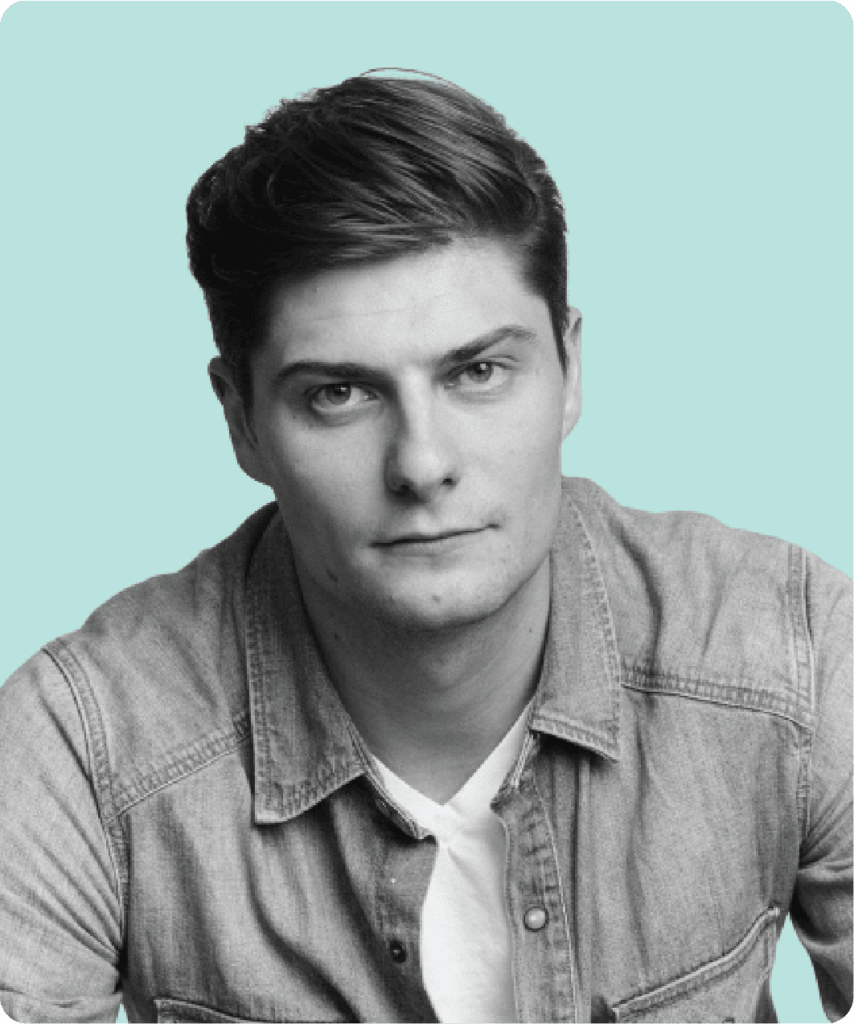
Chris Wichert, Koio
We’re ultimately committed to becoming a beyond-sustainable brand—we want to create shoes that help restore the environment rather than just sustain existing environmental conditions.
Sustainability at Koio means…
- Regenerative Agriculture: We created the Capri Regenerative, a Luxury sneaker handcratfted in Italy using leathers from regenerative farms in the Swiss Alps. These farms are managed in such a way that they actually reverse carbon emissions, regenerate soil, and increase biodiversity. In this sense, they’re reviving precious ecosystems that have been depleted by industrial farming methods. Eventually, we’d like to source all our materials from regenerative farms.
- Certified Materials: All of our non-regenerative shoes are made with leathers which are rigorously audited and rated based on their emissions, energy consumption, water usage, and chemical and physical waste management. Most of our leathers are sourced from tanneries that have received Gold or Silver certifications, meaning they’ve received the LWG’s highest ratings. Our soles are also made with a blend of recycled and FSC-certified natural rubber, which means the rubber is sourced from responsibly managed forests.
What was the catalyst for incorporating sustainability into your business plan?
Ryan Lupberger, Cleancult
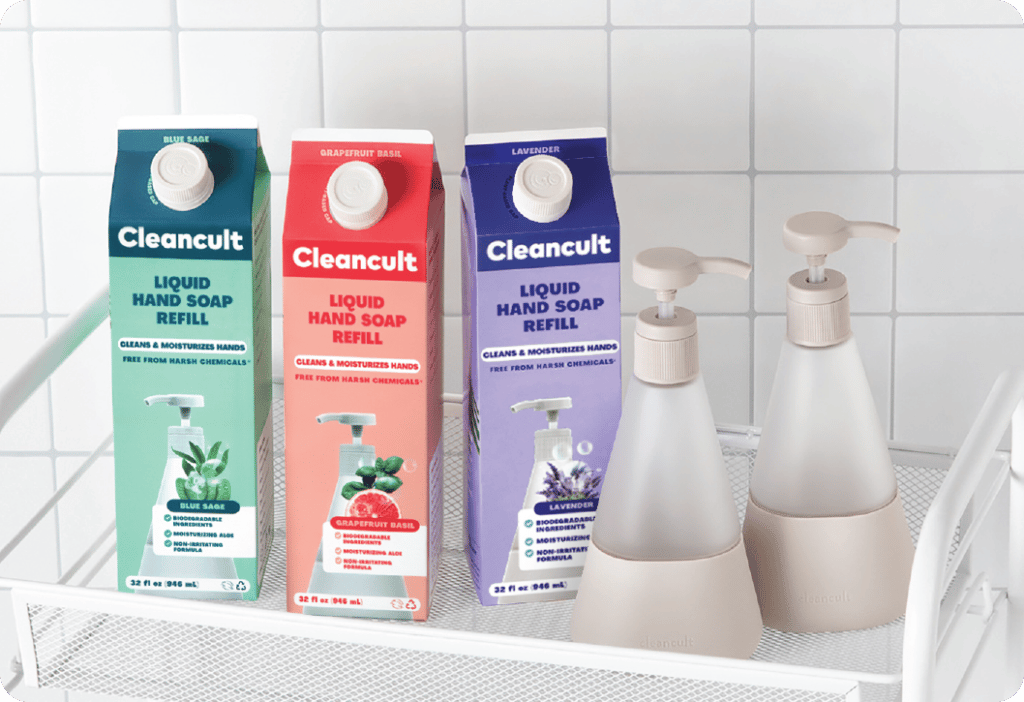
Gap in the Market: The catalyst for us was looking at the market. You had conventional cleaners which were not sustainable (contain a lot of carcinogens and basic toxins that are banned in the UK, but allowed here in the States).
Then, you had natural cleaners which were only semi-sustainable. We looked at the natural products in the market, but they’re all covered in plastic.
You also had these really “dark green” brands, meaning concentrates or powder, but people really don’t use cleaning products like that. They were trying to change behavior.
Our big thesis when we started this was, could we introduce a truly sustainable business without changing behavior? This has become our niche. We make the decision easy: paper or plastic?
How do you measure sustainability impact?
Chris Wichert, Koio
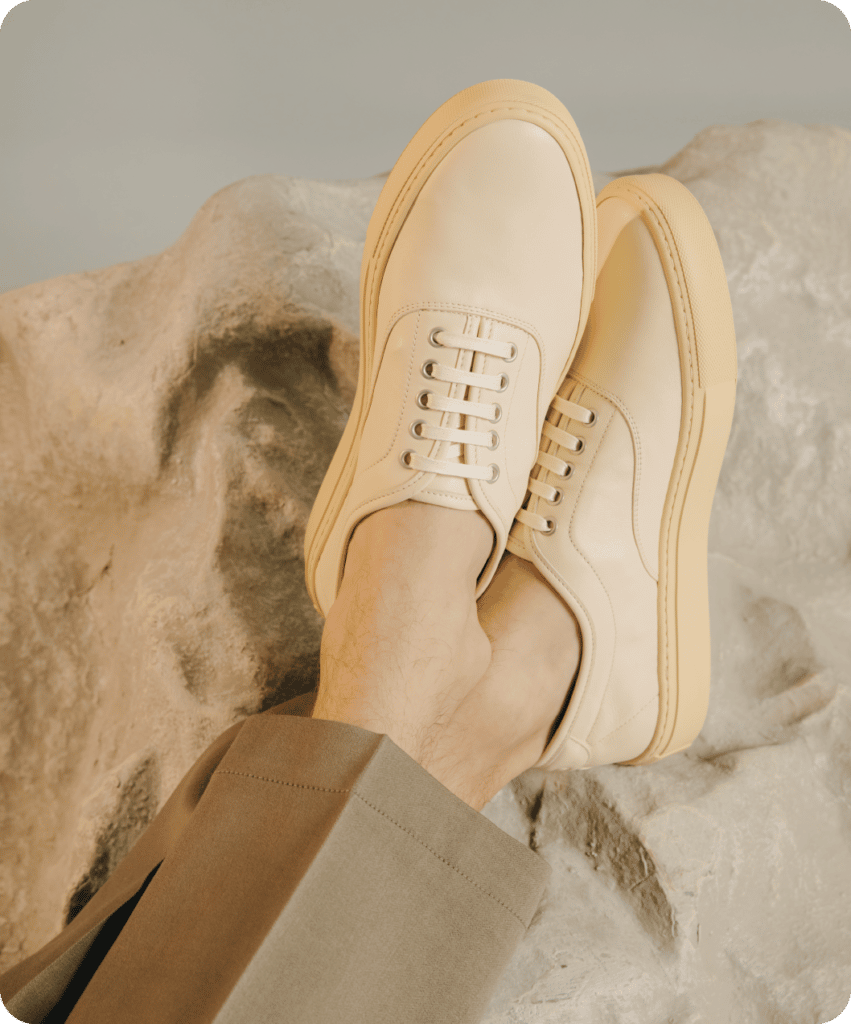
Verified Performance, Accountability & Transparency: Right now, we’re working towards becoming a B Corp, which means we strive to meet really high standards of verified social and environmental performance, transparency, and more. In order to meet these standards, we’ve begun setting measurable sustainability goals. For instance, we measure our carbon footprint and set quarterly goals to reduce it.
Carbon Footprint (incl. shipping & logistics): This year, we learned that the carbon footprint of shipping our shoes from Italy to the US via air was quite large, so we ship them by sea now. Shipping by sea is certainly slower than shipping by air, but we know it’s worth it because it’s helping to minimize our impact.
Geographic Proximity between Inputs & Factories: We also look at where our leathers are tanned—we look at the geographical location of the tanneries as well as the practices used by the tanneries. All of our tanneries are located in close proximity to our factories, so we can keep emissions low when shipping our hides from the tannery to the factory. As I mentioned earlier, we also source only from LWG-certified tanneries or specialty regenerative tanneries. LWG-certified tanneries are safer for the people who work there and for the planet; our specialty regenerative tanneries use time-honored vegetable-tanning processes, meaning the hides are tanned with barks, leaves, and roots.
With so many brands tackling sustainability, how do you recommend conveying brand authenticity?
Becca Millstein, Fishwife
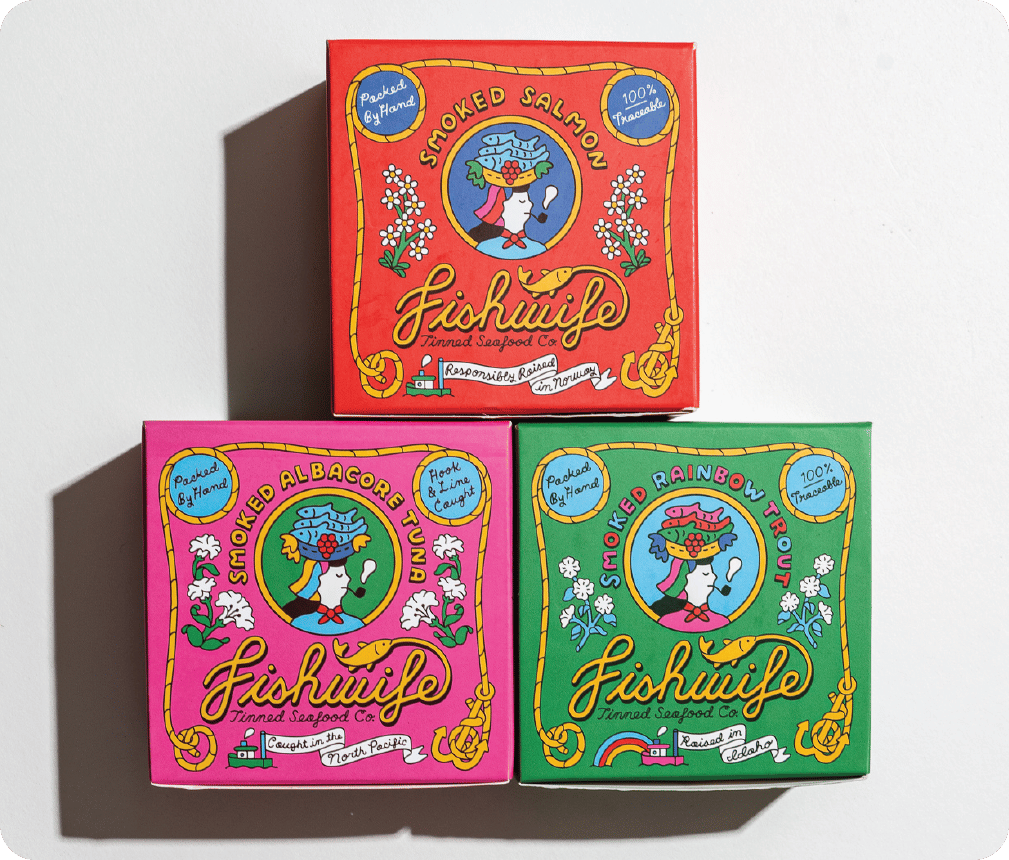
Be Transparent: If your brand is doing things “sustainably” (whatever that means in your particular product category), then tell the truth and your sustainable practices should speak for themselves. I think we’re still very much learning how best to tell our own sustainability story, but the tact I’ve taken is just being transparent about all of the seafood we source, where it comes from, who catches it, how they catch it, who farms it, how they farm it, etc.
Any recommendations for businesses that want to operate sustainably, but don’t know where to start?
Becca Millstein, Fishwife
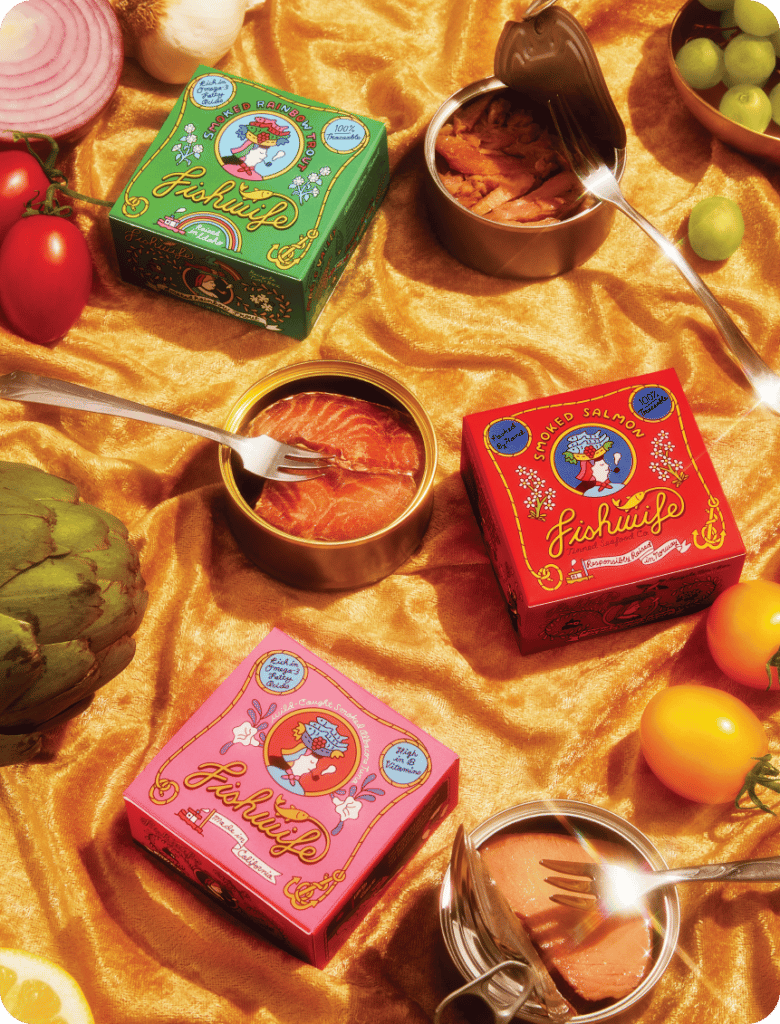
Reach Out to Experts: I could not have built my supply chains without having industry experts like Jennifer Bushman or Jack Cheney in my corner. Many founders are outsiders in their new industries — which brings a fresh perspective and is a good thing — but you can’t get a PhD in marine science (in my case) while starting up a business, and you’ll need access to someone who has one.
Chris Wichert, Koio

Start Small: Every step you take toward becoming a more sustainable brand matters, and it’s imperative to keep this in mind. Before we decided to go regenerative, we took smaller steps—these smaller steps allowed us to make bigger changes further down the road.
What are some challenges of running a sustainable business?
Ryan Lupberger, Cleancult
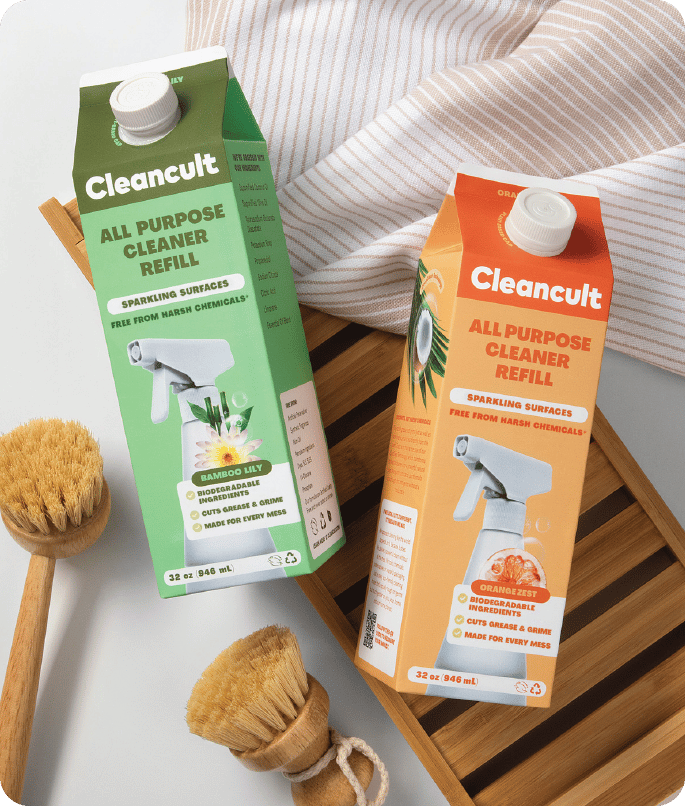
Time: We focused so much on the sustainable packaging angle, that our formulations weren’t as good. It took us 4 years to innovate on the intellectual property side, on the machinery side, to put soap in a milk carton. When we put it on the market people loved the cartons, but the soap wasn’t that good.
Cost: It’s more expensive, especially for a startup, to deliver sustainable solutions at scale. Only now do we have healthy gross margins… and it took us a long time to get there.
About the Brands…
Eco-friendly Cleaning Solution
Founded with the promise to redefine clean, Cleancult offers a revolutionary zero-waste refillable system for its high efficacy plant-delivered, clean formulas. With irresistible natural scents, Cleancult is packaged in sustainable milk cartons and non-disposable bottles that are shatter-resistant. Manufactured in the USA, they use no-nonsense ingredients, powered by plant-based ingredients and supplemented with essential oils.
Responsibly-sourced Tinned Fish
Fishwife is a new women-founded and led food company aiming to make ethically sourced, premium, and delicious tinned seafood a staple in every cupboard. We source from responsibly managed fisheries and aquaculture farms to bring the vibrance of conservas culture to the North American table.
Sustainable, Handmade Leather Footwear
Koio brings together modern design, sustainable innovation, and the finest Italian craftsmanship to create luxurious sneakers, boots, and more for men and women. The brand’s latest sustainable innovation is the Capri Regenerative Capsule, featuring two pairs of sneakers made using leather from regenerative farms in the Swiss Alps. With this project, Koio is reviving the planet’s rapidly deteriorating ecosystems from the ground up, creating shoes that are good for you and the planet.
About the Founders…
Ryan Lupberger
CO-FOUNDER + CEO, CLEANCULT
Ryan Lupberger has been named a top Colorado Entrepreneur by NFIB, is a TEDx speaker, an author for Conscious Company and has been a guest on “American Express Changemakers.” Since officially launching Cleancult, Ryan has grown the business by 400%, with the brand projecting a growth rate of 300% for 2021. Cleancult has 16 patents currently pending as Ryan champions a culture of innovation.
Becca Millstein
CO-FOUNDER + CEO, FISHWIFE
Becca Millstein is the CEO and cofounder of Fishwife, the tinned seafood company “leading America’s tinned fish Renaissance.” She worked in brand partnerships and marketing in the music industry before pivoting to the seafood biz. She graduated from Brown University in 2016 and has lived in Los Angeles ever since.
Chris Wichert
CO-FOUNDER + CO-CEO, KOIO
At Koio, Chris Wichert oversees the brand’s operations, performance marketing, finance, and business development. Prior to launching Koio, Chris was an investment banker at J.P. Morgan in Frankfurt, Germany and London, United Kingdom. Chris earned his MBA at the Wharton School, from which he graduated as a Palmer Scholar. He also holds a B.S. in Business Administration from Germany’s Otto Beisheim School of Management.


